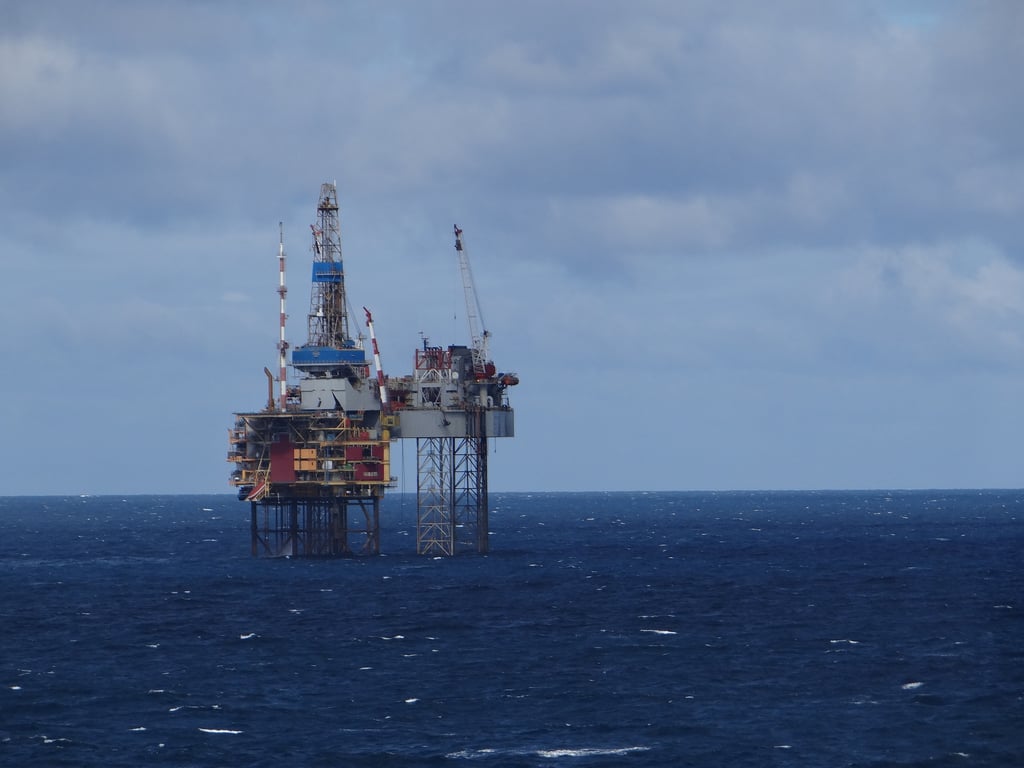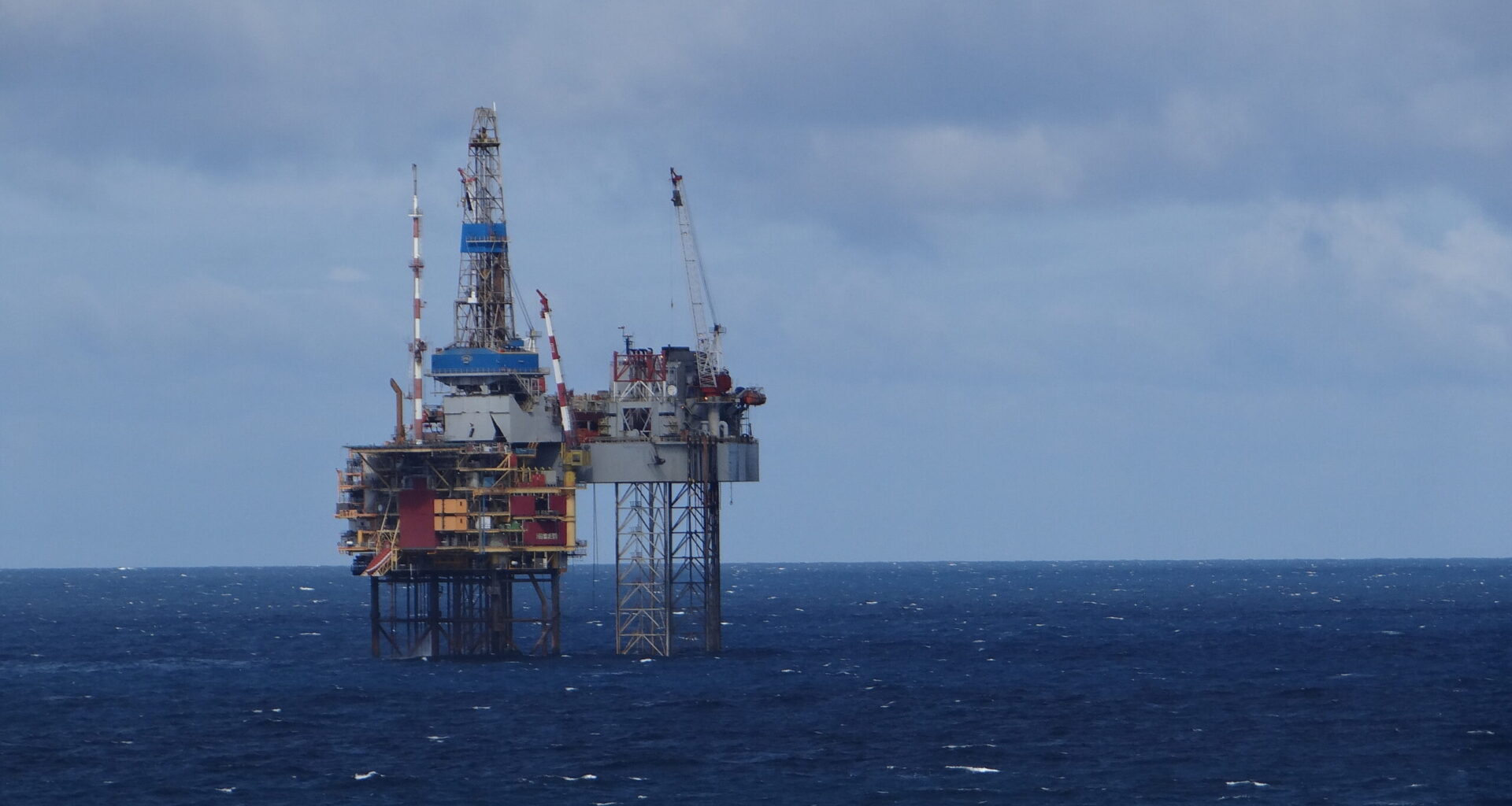The great transition is not going well. Only a third of workers leaving the oil and gas industry are finding jobs in off-shore wind or other renewables.
The figures come from a report this week from the think tank Future Economy Scotland. It says 18,000 jobs have been lost as the oil and gas industry slimmed down over the last ten years but only 6,000 jobs have been created in the renewables industry.
The big oil companies like Shell and BP have already decided to cut their investments in renewables and concentrate on oil and gas. This week saw a fresh application from the Norwegian company Equinor to drill in the Rosebank oil field off the west coast of Shetland. And 100 oil related companies have written to the Chancellor calling for a “reform” of the windfall tax.
 “Drill Scotland Drill” The retreat from renewables. Photo by Gary Bembridge.
“Drill Scotland Drill” The retreat from renewables. Photo by Gary Bembridge.
All this comes on top of a retreat by The Scottish Government on its interim net-zero targets and a postponement of the dates for phasing out of petrol and diesel cars and home gas boilers. There’s also increasing opposition to new electric pylons required to increase the capacity of the national grid and to battery storage depots.
The UK Government is also softening its opposition to new off-shore drilling licences with suggestions that existing oil platforms could extend their operations into nearby oil and gas deposits. And even The Scottish Government’s “presumption” against new oil exploration is being questioned by no less a person than the SNP’s environment spokesman, Seamus Logan MP.
Great British Energy, The UK Government’s agency headquartered in Aberdeen, is supposed to be leading the way to the low-carbon future but so far it’s all talk and task-forces. Much the same has happened at Grangemouth where 400 workers were made redundant with the closure of the Ineos oil refinery. So far, The UK Government has announced £200m to explore options for the future, but there’s nothing definite.
One of the few renewable pioneers turns out to be the Chinese firm Ming Yang. It wants to invest £1.5b in a wind-turbine fabrication yard at Ardersier on the Black Isle north of Inverness, creating 1,500 jobs. But so far talks with the UK government, which must grant permission, have run into a sea of caution. Is the firm being subsidised by the Chinese government? Is it a risk to our national security? Pertinent questions, in view of this week’s political row over the Crown Prosecution Service’s decision to drop charges against two men – one Scottish – accused of spying for the Chinese government.
But if Ming Yang is acting out of simple commercial interest, why are Scottish companies not investing more in our off-shore wind industry? The 100 oil companies argue that if there was a reform of the tax regime, by which they mean less tax, £41bn of new investment in oil and renewables would follow, creating 23,000 jobs over the next 20 years. That sounds far-fetched to me but it sits easily with the current tide of climate change denial.
The oil industry argues that we might as well drain the last few barrels of oil out of the North Sea, because it’s better than importing it from less environmentally clean sources abroad. But it’s not setting a good example. And it sounds like an excuse to avoid facing up to the changes the great transition needs – big tax reforms, the phasing out of fossil fuels, a ban on most plastic manufacturing and the acceptance of more off-shore wind turbines and on-shore storage.
The political parties should be leading on this, not pandering to local and special interests in the North East and allowing Reform to set their agenda. Most experts tell us the longer we delay such changes, the more difficult they will be.
Delay is so sad, because Scotland has such great potential as an energy powerhouse, with wind, wave, tide and hydro power. We’ve always been lucky with energy sources – first the Caledonian Forest, which we cut down for charcoal and timber, then coal which powered the industrial revolution, and now renewables. We have more useful wealth than any Gulf state. We just need the courage to divert investment and expertise from oil and gas to our natural resources of wind, tide and rain.
Like Loading…
Related
